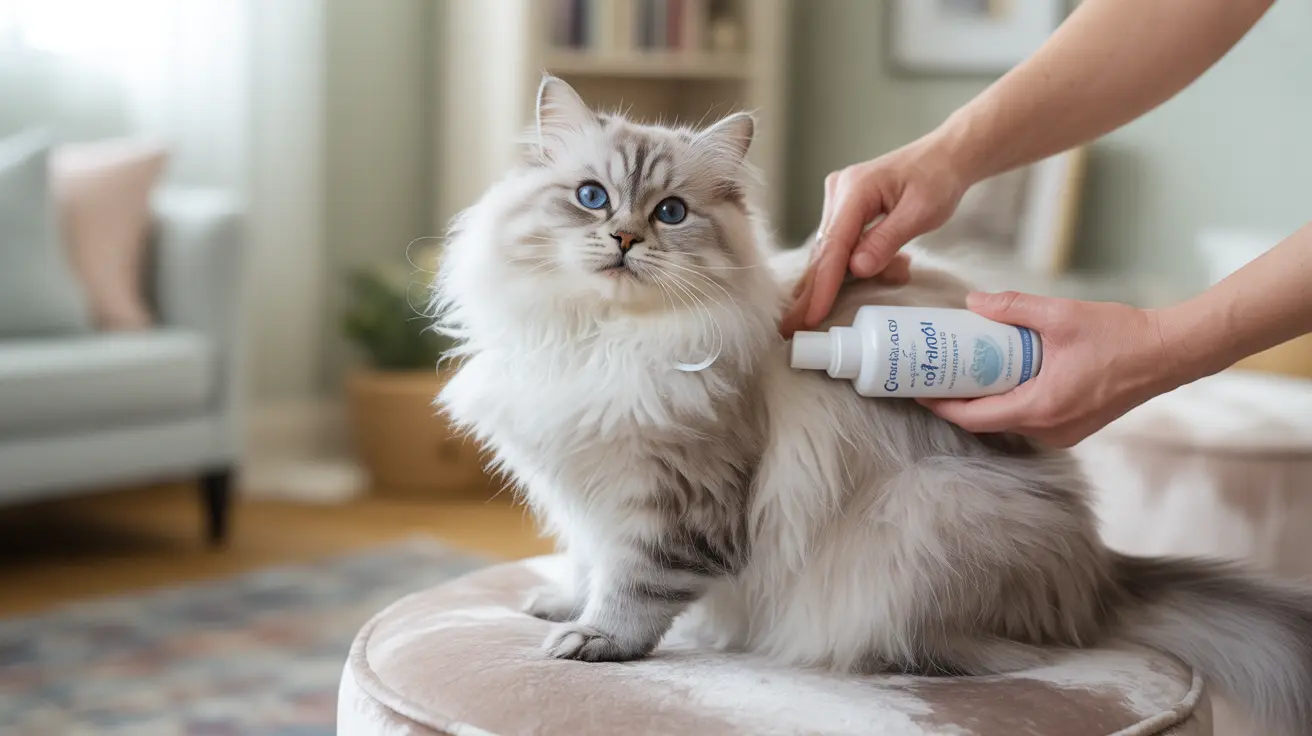Many cat owners, noticing their feline friend's dry or irritated skin, wonder if human lotion could provide relief. However, applying human lotion to cats can lead to serious health risks and complications. This comprehensive guide will explain why human lotions are unsafe for cats and provide veterinarian-approved alternatives for keeping your cat's skin healthy.
Understanding Cat Skin vs. Human Skin
Cats have fundamentally different skin structure compared to humans. While human skin contains 10-15 layers of cells, cats only have 3-5 layers, making their skin significantly more sensitive and prone to absorption of topical substances. Additionally, cats' skin maintains a different pH balance, which means products formulated for humans can disrupt their natural skin barrier.
Why Human Lotions Are Dangerous for Cats
Human lotions pose several significant risks to cats:
Toxic Ingredients
Many common lotion ingredients are toxic to cats, including:
- Essential oils and fragrances
- Parabens and preservatives
- Alcohols and menthol
- Zinc oxide (found in sunscreens)
- Steroids and medicinal additives
Ingestion Risks
Cats are fastidious groomers and will likely lick off any substance applied to their fur. When ingested, human lotions can cause:
- Vomiting and diarrhea
- Excessive drooling
- Lethargy
- Tremors
- In severe cases, organ damage
Safe Alternatives for Cat Skin Care
Veterinary Solutions
If your cat has skin issues, consider these safe approaches:
- Schedule a veterinary examination to identify underlying causes
- Use vet-prescribed topical treatments specifically formulated for cats
- Consider supplements with omega-3 fatty acids for skin health
- Maintain proper humidity levels in your home
- Address any parasitic issues that could cause skin problems
Natural Environmental Solutions
- Use a humidifier to prevent dry skin
- Ensure regular grooming with appropriate cat brushes
- Maintain flea prevention as recommended by your vet
- Feed a high-quality diet rich in essential nutrients
What to Do in Case of Exposure
If your cat has been exposed to human lotion:
- Wipe off as much product as possible with pet-safe wipes
- Prevent your cat from grooming the affected area
- Contact your veterinarian or pet poison control
- Monitor for signs of adverse reactions
- Keep the product container for reference if needed
Frequently Asked Questions
Can I safely use human lotion on my cat's dry or irritated skin?
No, human lotion should never be applied to cats. Their sensitive skin and grooming habits make human lotions dangerous, potentially causing skin irritation and internal health issues if ingested.
What ingredients in human lotions are harmful or toxic to cats?
Many common lotion ingredients are toxic to cats, including essential oils, fragrances, parabens, alcohols, menthol, zinc oxide, and various preservatives. Even natural or organic human products can be harmful to cats.
What should I do if my cat licks human lotion off its fur?
If your cat ingests human lotion, contact your veterinarian immediately. Monitor for symptoms like vomiting, diarrhea, or unusual behavior, and have the product information ready when speaking with your vet.
Are there any safe moisturizers or lotions specifically made for cats?
Yes, there are veterinary-approved moisturizing products specifically formulated for cats. Always consult your veterinarian before using any skin products on your cat, and only use products designed for feline use.
How can I treat my cat's dry skin without risking irritation or poisoning?
Address dry skin by visiting your veterinarian to determine the underlying cause, using prescribed treatments if needed, maintaining proper humidity levels, ensuring proper nutrition, and using cat-specific grooming products recommended by your vet.
Conclusion
While it's tempting to use human lotion on your cat's dry skin, doing so can lead to serious health complications. Instead, work with your veterinarian to develop a safe, effective skin care routine using products specifically formulated for cats. Remember that skin issues often indicate underlying health concerns, making professional veterinary guidance essential for proper treatment.






